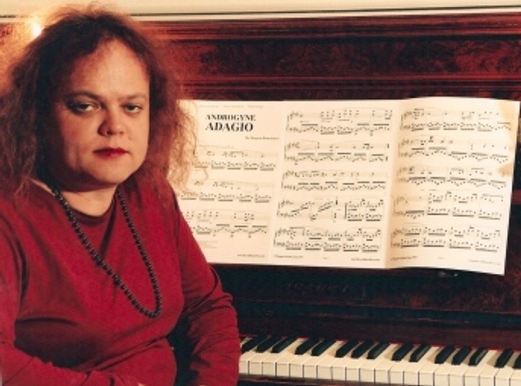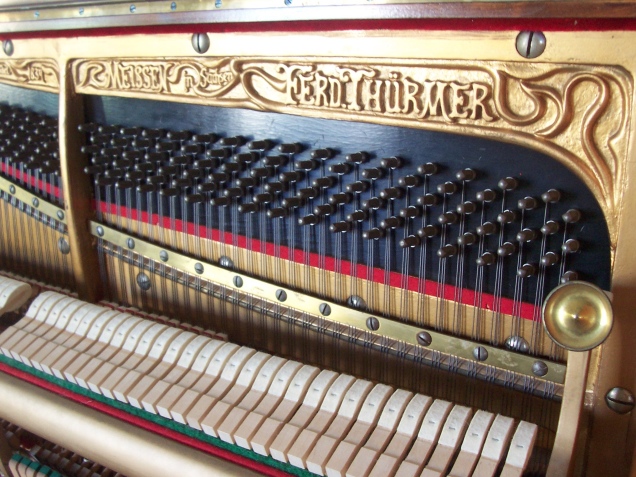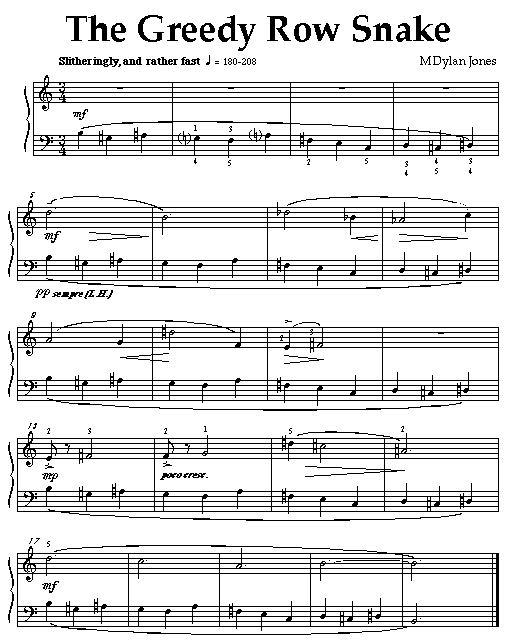
Online Piano Resources
Professional Services
All about Margaret
Mix Margaret Dylan Jones
W.A. composer, pianist, teacher, article writer, lyricist
About Copyright & Copyright Notice
For copyright and royalty in my own works see www.mixmargaret.com/copyright
General Information About Copyright
In the 1990s I was a sheet music publisher, under the name of Hovea Music Press, so I had to learn a lot about copyright. Also, I successfully sued the biggest sheet music publisher in Australia, and two others, over a violation of my copyright, with minimal legal assistance (I'll put something about that in my blogs). PLEASE NOTE: HMP was inactive for many years but was revived in 2015. My knowledge of Australian copyright law is out of date.
However, I will venture some thoughts about copyright. Please don't take any of this as legal advice—this is just to warm you up so can ask more intelligent questions when you talk to your specialist copyright lawyer or agent, which you really ought to do if you are a creator or want to use someone else's work. Double-check everything with them.
Different CountriesFirstly, it's a vastly complicated set of laws and is different in every country. China notoriously refused to join the international community in acknowledging intellectual property rights, and I believe that is partly a cultural issue. The whole idea that you can have rights to creative works is a Western notion of fairly recent origin.
How a Work is CopyrightedOne persistent false belief about copyright is that you need to somehow 'copyright' a work. This probably stems from pre-copyright legislation times in the early twentieth century. Essentially, in Australia at least, and it would be similar in many other countries, copyright exists in an original work from the moment it is created. We use the international copyright symbol (c) or, more properly, a circle with a 'c' inside it, to indicate who owns the copyright or to warn thieves to leave it alone. But the symbol does not actually give you protection, it just means you are asserting that you own the rights and it helps people to know who wrote it.
If someone reproduces your work without your permission you then have to sue them, if you want redress. At that point you will need your rough drafts and any other evidence you can find which shows that you were the original creator, and on what dates. So, keep the evidence and make sure you date it. If you're worried, find some way of getting it dated for you, at the time of creation, because it's all about persuading a judge or magistrate to believe your story over the other person's story.
Ideas Are Not Copyright
It's important to note that copyright exists only in the WAY your ideas are expressed, not the ideas themselves.
So if you find an article that essentially says the same things as your own but uses different words, it will be a matter for the judge or magistrate to decide if it really violates your rights. This will depend on how closely it follows your own article.
Many Copyrights in the Same Work
Obviously, an opera has many parts that may be subject to copyright, but even less complex works may be subdivided. For example, a song may have separate rights in the musical score, any arrangement of the score (including easy educational versions), the audio recording, the video, and the lyrics. Any or all of these may be licenced for others to reproduce. Larger works, such as operas and other stage shows, have special rights which are negotiated and licenced separately.
(Un-)Authorised Recordings
As I said above, my knowledge of this complex legislation is out of date, but I know that in the 1990s after an authorised recording of original music was published (i.e. made available to the public, whether for free or for a price), anyone else could make their own recording and publish it. They certainly had to pay royalties, but did not need to get the permission of the creator or notify them in advance. The royalty percentage was fixed in legislation.
So there was no ability to negotiate for a higher percentage, you had no say in how the recording was made, and you had no power of veto over a bad recording. Ask me how I know this... (long story about three Australian companies releasing recordings of my little AMEB piano exam work ‘The Greedy Row Snake’ without my knowledge.)
Generally speaking, recording musicians don't get royalties or commission on their recording. They're usually paid a flat fee, which always seemed a bit unfair to me, but there it is. I don’t know if that has changed.
Photocopies of Music for Teaching, and Fair Use
Primary schools and high schools in Australia pay a licence fee so they can make photocopies of musical scores. They have to keep very good records and, like anyone else, can suffer massive fines if they slip-up.
Private music teachers and private music studios can't get these licences so they always have to use the published editions. Essentially, photocopies can't be used in private studios and if you're learning duets or instrumental or vocal works with accompaniment, both players must have a book. It's not worth getting fined several thousand dollars for the sake of a $20 music book.
Many people cite the 'Fair Use' provisions of the copyright act when they talk about sheet music in an educational setting. There is some ability to photocopy a small portion of a work (music or textbooks) for study purposes, but this explicitly does not apply to learning to play or sing a musical work. I guess this means you could only photocopy a small portion as 'fair use' if you were making a musicological analyis or study of a work. Students learning to play or sing can't use photocopies (but see below).
Eisteddfodau and Page Turning
Music festivals and competitions, such as eisteddfods, will sometimes allow competitors to use photocopies under the strict condition that the copies are handed over to the organising committee after the performance, to be destroyed. Don't assume this, check with them first.
Many years ago, when new copyright laws were being rigorously enforced with fines of many thousands (or many tens of thousands) of dollars, I spoke to a music shopkeeper about photocopying a page here and there to help with page turning. There was probably no mention of it in the Copyright Act, but the shopkeeper, who was a staunch supporter of copyright, said he would be perfectly happy for some pages to be photocopied if it enabled better page turns, as long as they were used with a published edition. I used to sticky-tape them to the book so I could have three or four pages open on the piano.
Website Copyright NoticeI hold and reserve copyright in all original text, graphics, photographs, musical scores, audio recordings and video recordings on this site, except where otherwise noted. While most of it is original, there are some items of which I am not the copyright holder, and these are acknowledged on those pages. For example, some articles are by myself but others may be by other authors.
On November 15, 2015 I used a Creative Commons copyright licence for a major article about Mx; this was the first time I used a CC licence.
Copyright in comments on the blogs belongs to the author of each post. Anyone posting to the blogs warrants that they are the copyright holder or that they have the express permission of the copyright holder to post copyright material there.
Some photographs were not taken by myself, but were commissioned. The copyright holders of some photographs are unknown. If you think you know who took a photo or commissioned it, please contact me.
Grateful acknowledgement is made to Louise White (professional photos of me in red, at Thurmer piano with score of Androgyne Adagio/Androgyne Prophecy), and Mark Coughlan (editing of ColourFast Piano Music).
© Margaret Dylan Jones 15 November 2015
to 20 October 2021.


My sites
PIANO PAGES HOME
SINGING SITE HOME
RESOURCE REVIEWS HOME
Combined Entry Portal
BLOG
(leave a comment)
Facebook:
MixMargaretDylanJones
SoundCloud
(free recordings)
YouTube (videos)
Site List